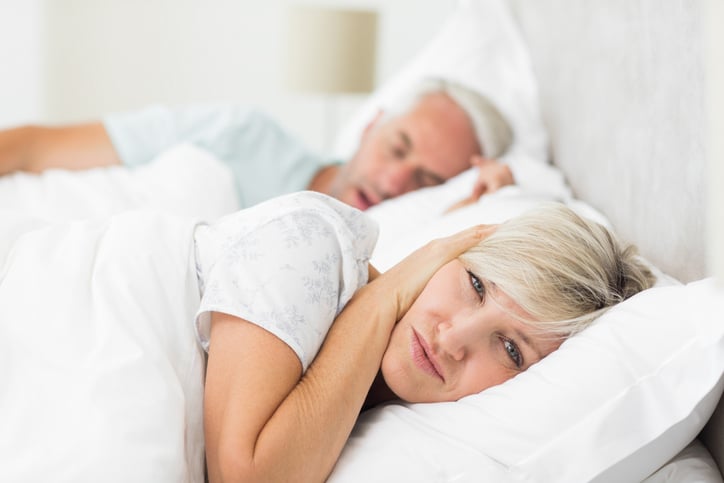You may not like to admit it, but we’ve all been guilty of SNORING…
Especially when you’re in a deep sleep.
Most of the time, a firm elbow or nudge from your spouse is all it takes to get you to pipe down and stop the sound of sawing logs in your sleep.
But, for millions of Americans, snoring goes way beyond the occasional ‘annoyance’ …
It’s constant… it’s relentless… and it could be a sign of a potentially DEADLY condition.
So, if you or a loved one battles with frequent snoring that rivals the sound of a zooming train, you’re going to want to keep reading…
Because new research about snoring and your health could be life-saving!
Snoring: A Warning Sign for Obstructive Sleep Apnea?
Snoring is extremely common. But according to new studies, frequent and excessive snoring could be a warning sign of obstructive sleep apnea – a sleep disorder that affects nearly 25 MILLION Americans.
Obstructive sleep apnea happens due to a blockage of the airways by weak, heavy or relaxed soft tissues that leads to snoring. But this condition is particularly dangerous because it can cause you to stop breathing for 10 seconds or more at a time!
It’s also dangerous because obstructive sleep apnea often goes undiagnosed, and when left untreated can increase your risk for hypertension, heart disease, type 2 diabetes, depression, and even early death.
Which begs the question…
How can you stop and prevent obstructive sleep apnea from derailing your sleep… and your health?
If snoring is ruining your sleep (or your spouse’s), the first thing you should do is talk to your doctor. He will likely ask you a series of questions and run some non-invasive tests to determine if you’re at risk for obstructive sleep apnea… and develop a treatment plan from there.
The most popular treatment for sleep apnea is a continuous positive airway pressure (CPAP) machine – which is designed to help regulate breathing while you sleep.
There are plenty of benefits to CPAP machines, but some folks find they’re too bulky, hard to clean, and downright uncomfortable. And some CPAP machines have even been subject to recalls.
Your doctor can help you determine if a CPAP machine is the right approach for you.
There are also ways to help stop sleep apnea without the use of a device.
One of the best ways to curb sleep apnea is to maintain a healthy weight. This keeps your airways clear and reduces dangerous sleep apnea symptoms.
In fact, studies have shown that even a modest weight reduction in people with obesity can eliminate the use of CPAP therapy altogether!

